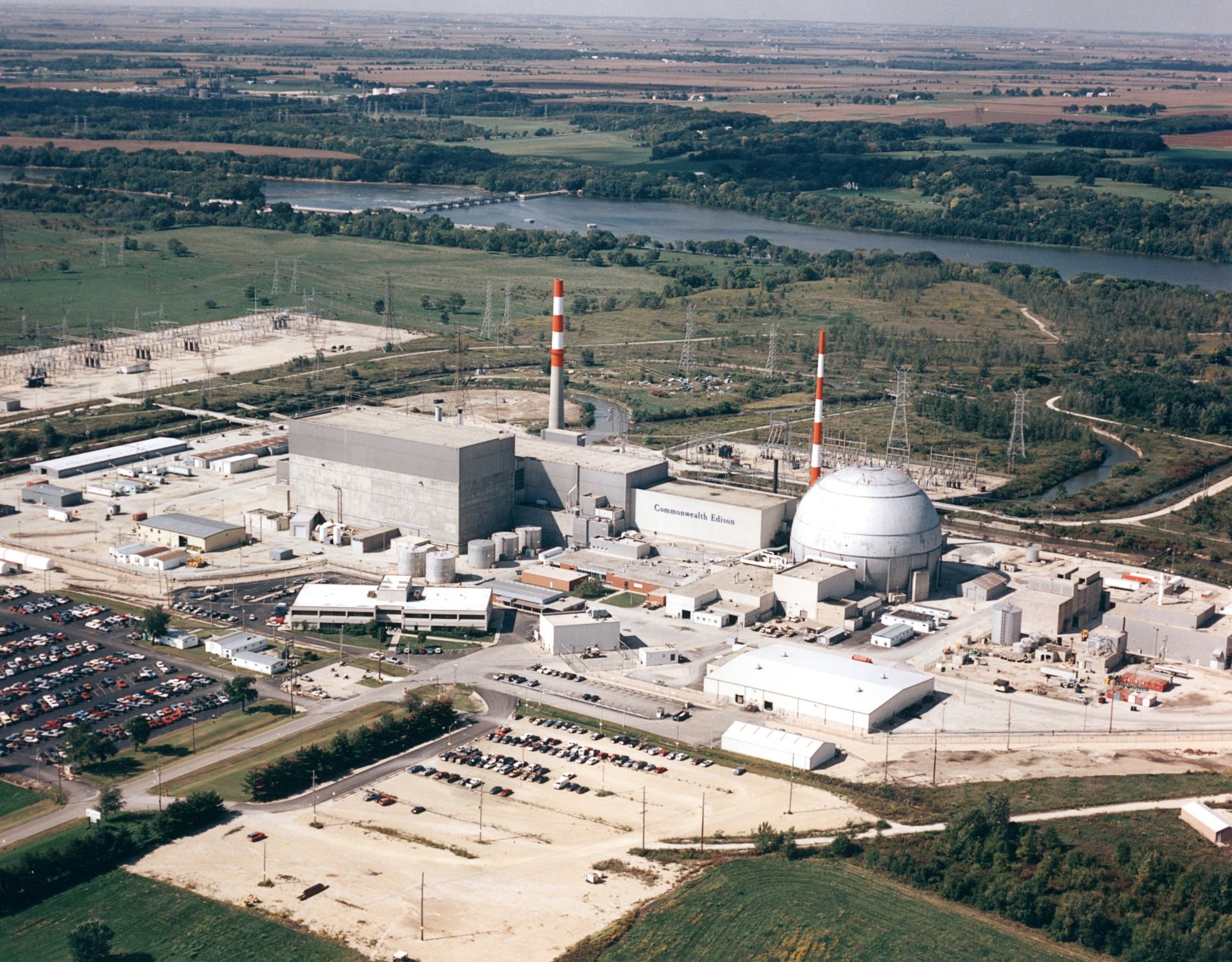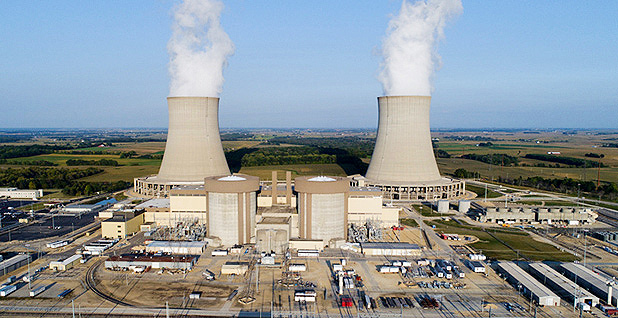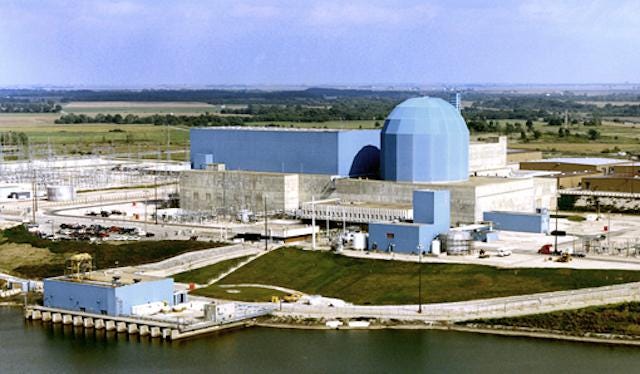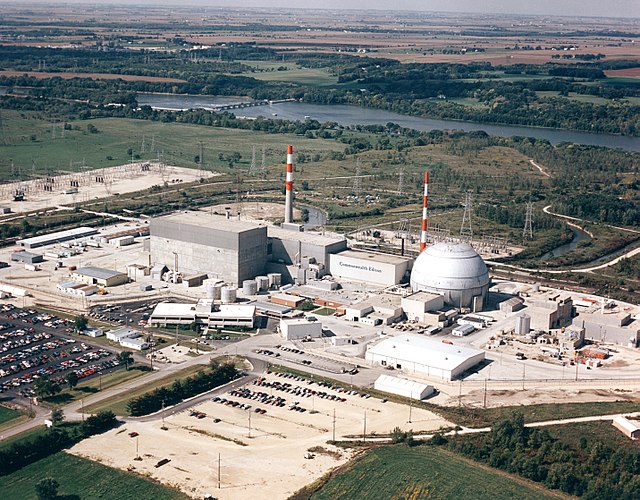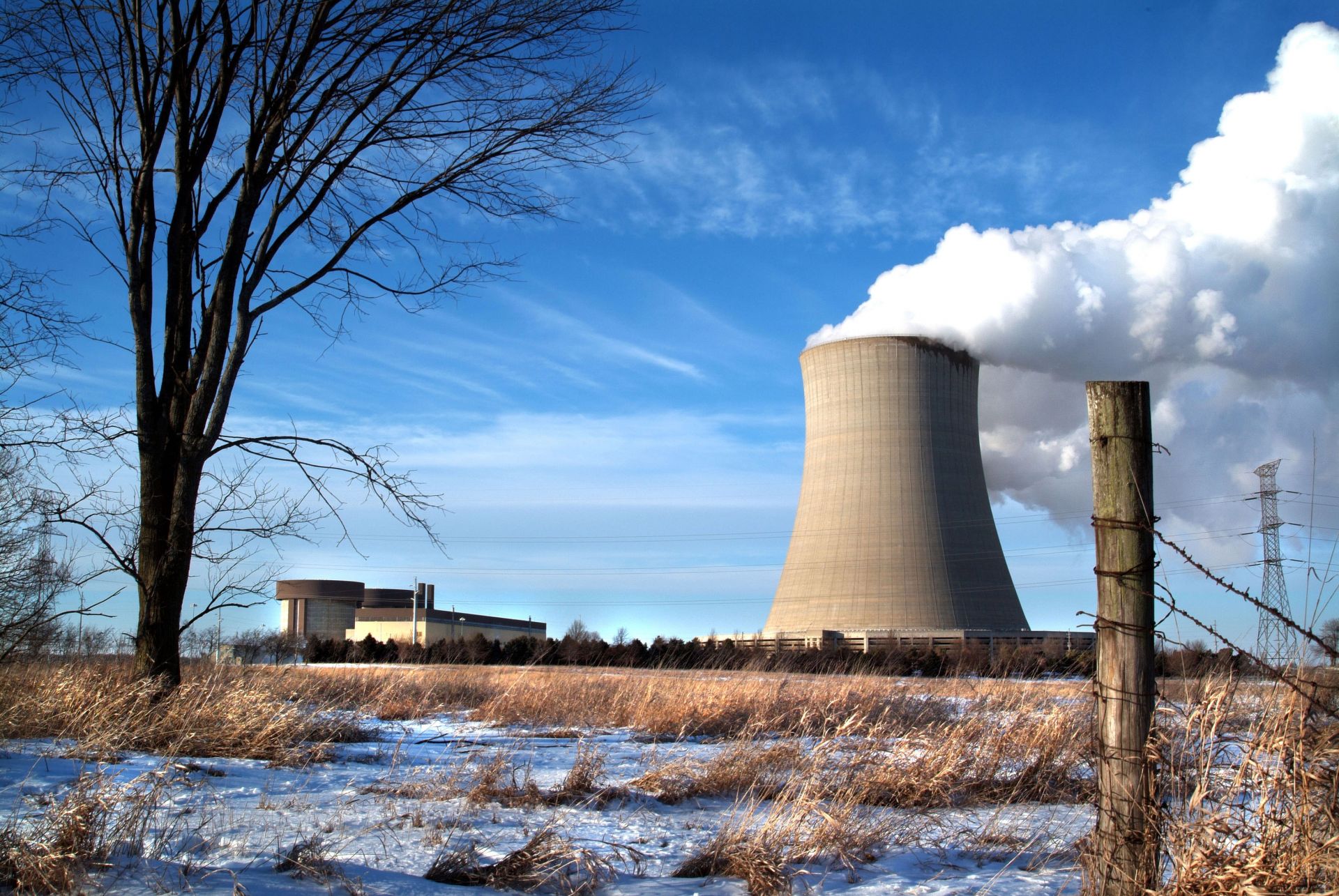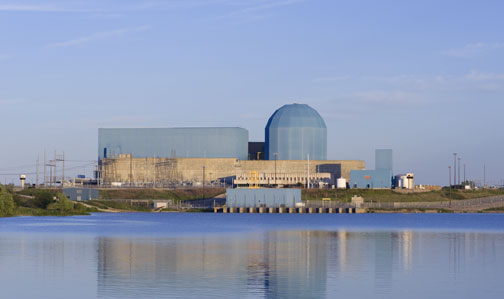Dresden nuclear power plant. (Photo: Constellation Energy)
Constellation Energy has filed with the Nuclear Regulatory Commission for a subsequent license renewal for its Dresden nuclear power plant in Illinois. The extension would allow Dresden to run through 2051.
The filing begins a comprehensive, multiyear review by the NRC. Unit 2 is currently licensed to operate through 2029 and Unit 3 through 2031. The facility’s license was first renewed by the NRC in 2004.
Clinton nuclear power plant, located near Clinton, Ill. (Photo: Constellation)
Constellation Energy is asking the Nuclear Regulatory Commission for an initial license renewal for its Clinton nuclear plant in Illinois, which would allow the facility to operate through 2047.
This move is not unexpected from Constellation, the largest producer of nuclear power in the United States. The vast majority of nuclear plants in the United States have already been approved for their first 20-year renewal term. Clinton, which came on line in 1987, is one of the nation’s “newer” plants.
The Byron nuclear power plant. (Photo: Constellation Energy)
Constellation Energy has announced an agreement with Commonwealth Edison (ComEd), Illinois’s largest electric utility, to power the latter’s 54 offices and metered facilities with locally produced nuclear energy, 24/7.
Constellation Energy's Clinton nuclear power plant. (Photo: NRC)
Constellation Energy, owner and operator of the nation’s largest reactor fleet, will ask the Nuclear Regulatory Commission to extend the operating licenses of the Clinton and Dresden reactors by 20 years, the company announced Monday, adding that it expects to file license applications with the agency in 2024.
The Dresden nuclear power plant (Photo: Nuclear Regulatory Commission)
As Illinois lawmakers continue to debate energy legislation that would allow the state’s Byron and Dresden nuclear plants to continue operation beyond this year, Exelon would like to remind everyone—including those legislators, no doubt—of what is at stake.
April 16, 2021, 2:59PMUpdated April 19, 2021, 10:56AMNuclear News The Byron nuclear plant is currently slated for permanent closure in September. Photo: Exelon
A research and consulting firm hired by Illinois governor J. B. Pritzker’s administration to scrutinize the financial fitness of Exelon’s Byron and Dresden nuclear plants approves of limited state subsidies for the facilities, according to a redacted version of the firm’s report made available yesterday.



